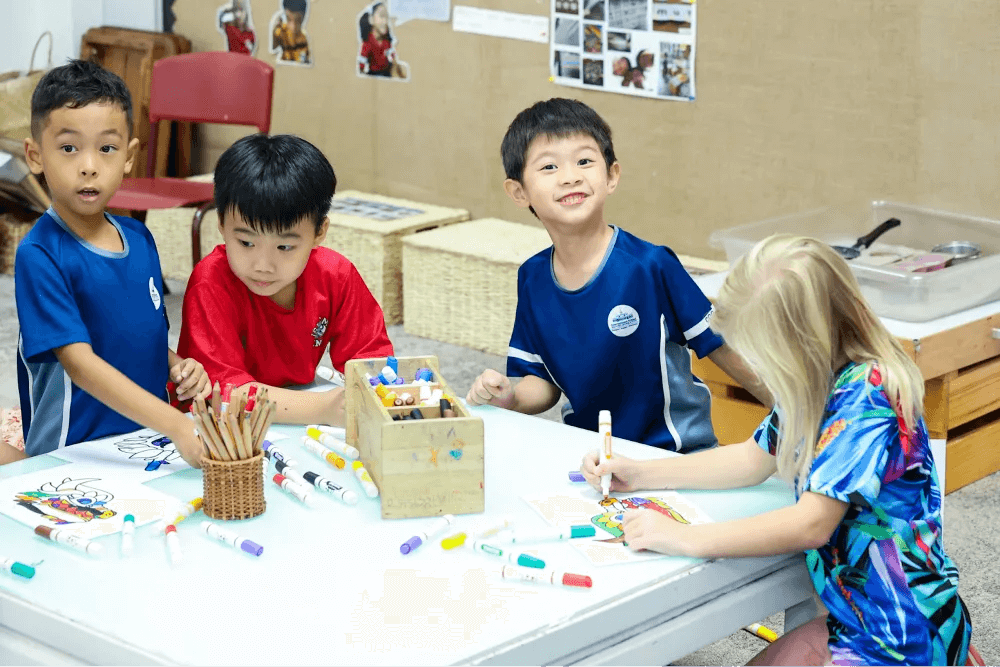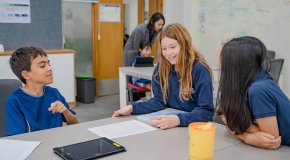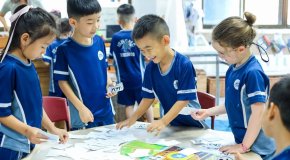Top 15 Self Help Skills of Preschoolers
The early years of childhood are a critical time for developing essential life skills. Among these, self help skills of preschoolers play a fundamental role in fostering independence, confidence, and a sense of accomplishment.
Our article explores the top fifteen self help skills that contribute significantly to a preschooler’s overall well-being and pave the way for future success. Let’s delve into the specifics!
What are Self Help Skills?
Self help skills of preschoolers are the skills that kids acquire to be more independent with time. Self help skills for preschoolers do not just involve basic tasks like dressing or brushing teeth, they lay the foundation for future life skills.
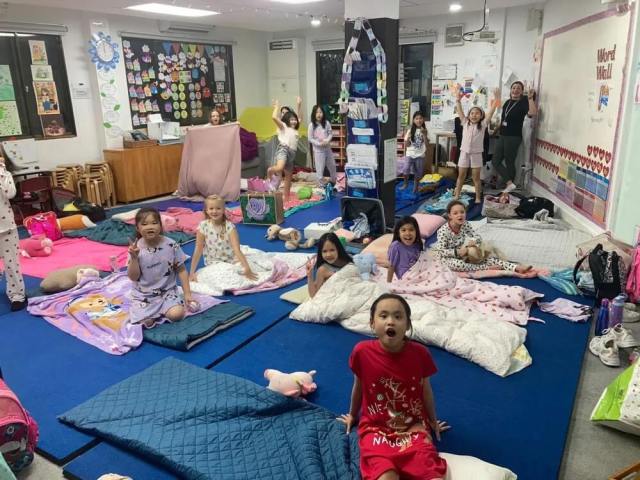
Building these self help skills is a slow process that requires patience, encouragement, and repetition. When preschoolers successfully learn these abilities, they feel proud of themselves and know they can take care of their needs without relying on others’ assistance.
How Important Are Self Help Skills for Preschoolers?
Preschoolers need these skills to be able to dress themselves and use the bathroom unassisted. Children can build independence and self-esteem and lay the foundation for academic success. Self-care practice leads to exposure to planning, sequencing, enhancing motor skills, and other activities like using art supplies or following instructions in school.
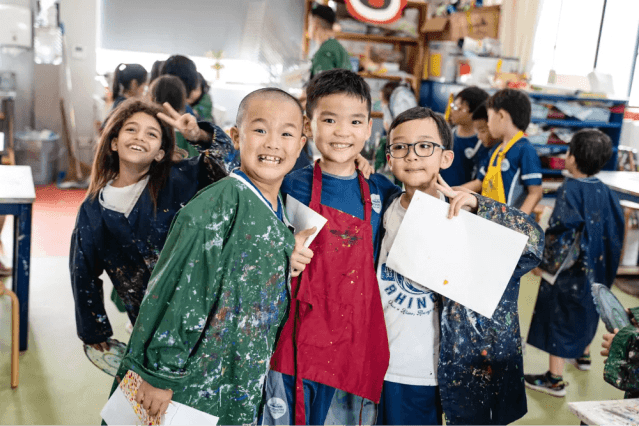
Conversely, difficulty with self-care can limit a child’s world. Limited social participation, missed school trips, or even bullying can result from dependence on others.
Therefore, fostering self help skills of preschoolers is an investment into their life generally. As a result, parents can prepare them for success both at school and socially by facilitating practice opportunities within supportive surroundings that embrace failure as a learning point.
15 Core Self Help Skills for Preschoolers
The following section will build upon the 15 core self help skills of preschoolers by providing age-appropriate activities to support their practice and mastery.
-
- Dress and undress
- Feed themselves
- Practice personal hygiene
- Practice toileting
- Clean-up after activities
- Do simple chores
- Drink from a cup
- Follow basic safety skills
- Express communicating needs
- Form healthy eating habits
- Form basic problem-solving
- Follow simple instructions
- Socialize with peers
- Recognize personal belongings
- Practice emotional self-regulation
1. Dress and Undress
Preschoolers can begin developing dressing skills by laying out clothes in the order they go on. Start with easy-to-manage garments like large shirts and pants with elastic waistbands.
Parents can provide verbal cues and demonstrate each step slowly. As their dexterity improves, introduce tasks like buttoning and zipping with larger buttons and zippers.
2. Feed Themselves
Self-feeding builds independence and fine motor skills. Begin by offering finger foods that are easy for small hands to grasp. Start with a spoon and move on to a fork/chopsticks as your child gradually gets used to using utensils.
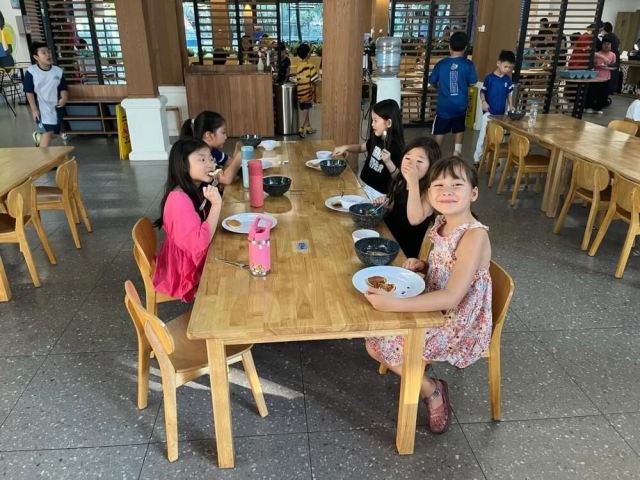
It’s advisable to have child-sized utensils that are easy for children to hold on their own. Parents can model proper utensil use and offer assistance when needed.
3. Practice Personal Hygiene
Washing hands is necessary to prevent germs from spreading. Parents can make hand-washing fun by coming up with catchy songs that children can sing while washing their hands. This will ensure that their child uses soap and water for the recommended length of time.
Another vital hygiene practice is brushing your teeth twice a day. Special toothbrushes and toothpaste are available for children, and parents can help choose from them and teach them how to brush their teeth properly.
4. Practice Toileting
For preschoolers, potty training is one of the great milestones in their lives. Some signs to look for include increased bladder control, interest in using the toilet, and the ability to follow simple instructions from parents.
As a method of training, parents may introduce a child-sized potty and make them aware of how it’s used through picture books or even role-playing. Parents should reward children with potty use, and be patient with accidents to ensure successful potty training.
5. Clean-up After Activities
Cleaning up after playtime promotes responsibility and organizational skills. Preschoolers can start by putting away toys in designated bins or shelves. Parents can use clear labels and pictures to help young children identify where each toy belongs.
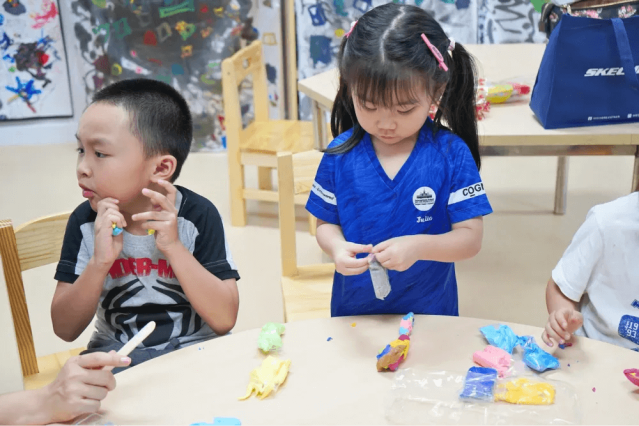
As the child’s abilities develop, they are encouraged to help with simple tasks like wiping down tables or putting away books. Parents can use positive language and celebrate their efforts to promote a sense of accomplishment.
6. Do Simple Chores
Preschoolers can practice age-appropriate chores, which begin fostering responsibility. Parents can assign duties like keeping away toys, sampling laundry by color, or setting up the table using light utensils.
7. Drink from a Cup
It also promotes oral motor development when kids move from sippy cups to open ones. For instance, preschoolers should start with small-weight glasses that are less likely to tip over.
Parents can demonstrate proper holding techniques and offer verbal encouragement during practice sessions. Patience and praise are essential, as spills are inevitable during this learning process.
8. Follow Basic Safety Skills
Preschoolers should be equipped with basic knowledge of safety so that they can move freely in their surroundings. Parents can teach them a few basic rules, such as not running in the street, looking right and left before crossing, and keeping hands from hot things.
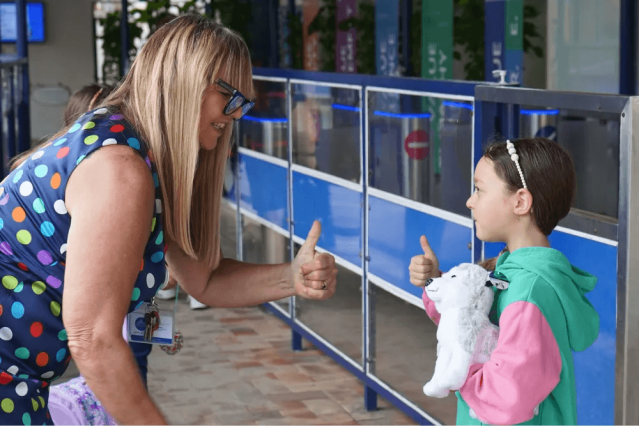
To facilitate memorization, you can use simple songs or rhymes while role-playing scenarios are good for learning about practical safety principles.
9. Express Communicating Needs
Efficient communication forms part of self help skills. Parents can teach preschoolers to openly state their needs instead of having tantrums or crying. Also, they should use “I” statements like “I feel hungry” or “I need help with my shoes.”
To allow children to practice expressing themselves, you should give them a selection of clothes from which they can decide what to wear. Active listening and responding to their verbal cues demonstrate the value of clear communication.
10. Form Healthy Eating Habits
Introducing healthy eating habits early in life is important for the child’s well-being.
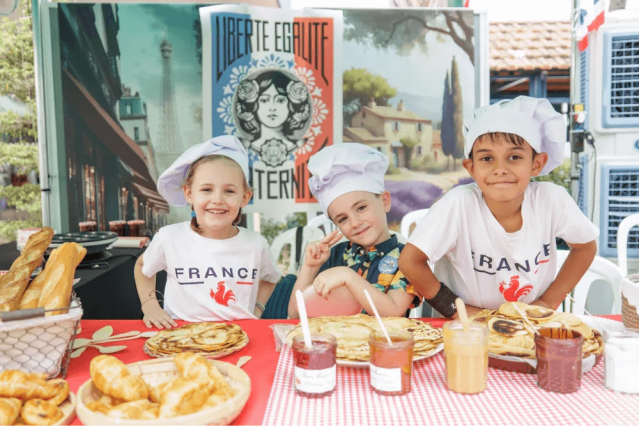
Preschoolers can participate in meal preparation tasks like cleaning fruits and vegetables or setting tables. Mealtimes will be related positively if there are various choices for children to select within set boundaries.
11. Form Basic Problem-Solving
Preschoolers can begin developing problem-solving abilities by encountering small challenges in everyday routines. When a toy breaks or a button won’t budge, encourage them to brainstorm solutions.
Parents can offer gentle prompts, such as, “Can you think of another way to open the box?” or “What tools might help us fix this toy?” By celebrating their efforts and offering praise for creative thinking, parents can nurture a problem-solving mindset.
12. Follow Simple Instructions
Following instructions is a fundamental self help skill. Parents can start with clear, two-step directions like “Pick up your toys and put them in the bin.”
As the child masters simple instructions, the complexity gradually increases. When giving instructions, break them down into smaller steps, use positive language, and allow for repetition.
13. Socialize with Peers
At this stage, preschoolers have a natural curiosity about others’ interests and actions. During playtime, parents and teachers can encourage greetings, sharing toys, and taking turns.
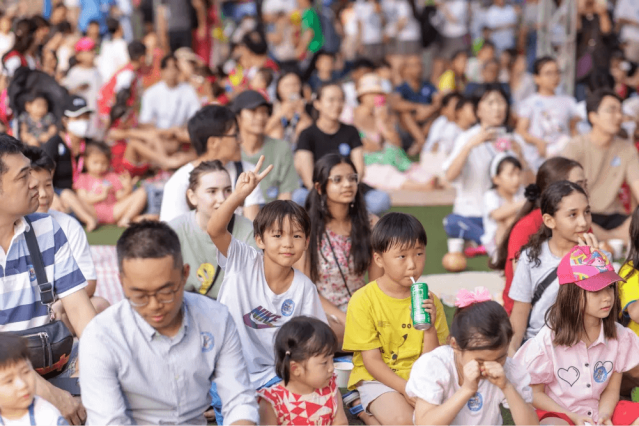
Parents can model appropriate social behavior and role-play scenarios to help children navigate social situations. When conflicts arise, you might guide them through peaceful resolutions, focusing on communication and empathy.
14. Recognize Personal Belongings
Identifying personal belongings fosters a sense of responsibility and independence. Parents can label backpacks, water bottles, and clothing with pictures or names to aid recognition.
During clean-up time, you can have children identify their belongings and put them away in designated spots. Parents can also create a “lost and found” area for misplaced items and gently remind children to check there for missing belongings.
15. Practice Emotional Self-Regulation
Preschoolers experience a wide range of emotions, and learning to manage them effectively is a valuable self help skill. Parents can help children identify their emotions by using simple terms like “happy,” “sad,” or “frustrated.”
Role-playing scenarios also allow children to practice calming techniques like deep breathing or taking short breaks. Parents should acknowledge and validate their emotions while still guiding them towards constructive solutions.
Building upon the foundation of self help skills of preschoolers, ISHCMC provides a wealth of engaging activities and student support to bring these concepts to life for our young learners.
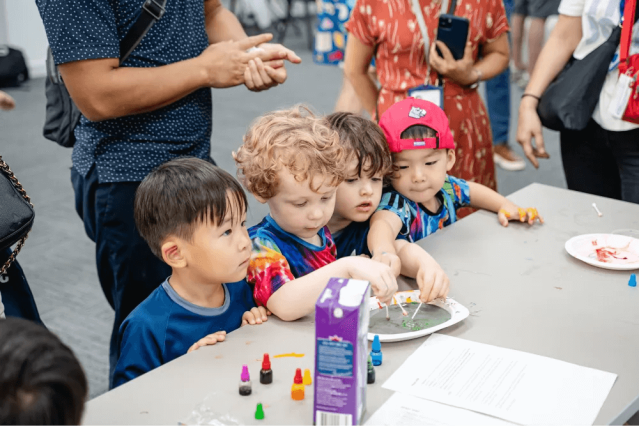
-
- ISHCMC Activities:
-
- The Arts Program: Provides opportunities for students to develop creativity, confidence, and maturity through various art forms.
- Primary Media Centre: Equips each student with a myriad of resources to enhance their book reading and information technology skills. It acts as a dynamic hub for both students and parents, as resources are available both on campus and online. Housing a vast array of print and electronic resources, such as fiction, non-fiction, reference books, graphic novels, and electronic databases, the Media Center is filled with students working on research projects before and after school, even during lunch breaks throughout the day.
- After-School Activities: Kindergarten students can participate in a broad array of after-school activities (ASAs) to follow their interests and promote academic growth by joining both sporting and non-sporting competitions. Each semester consists of two different club sessions, each lasting six to eight weeks.
-
- Support at Primary School:
-
- Counselors: ISHCMC employs counselors who offer academic, social, and personal development support to both students and parents. They collaborate with teachers to ensure students receive appropriate guidance.
- Learning Support: The school provides learning support teachers for students with mild to moderate learning needs. The Learning Support Team monitors progress and develops strategies for support at school and home.
- English as an Additional Language (EAL): The EAL program provides language support for students in Grade 1 and above whose native language is not English. EAL teachers assess students’ language development, offer withdrawal and in-class support, and collaborate with classroom teachers to ensure consistent language development. They also provide resources for parents and support students’ social and academic skills.
-
- ISHCMC Activities:
Self Help Milestones for Preschoolers
Having explored the essential self help skills of preschoolers, let’s now delve deeper into the specific milestones children typically achieve within this age group.
| 2-3 years | 3-4 years | 4-5 years |
|---|---|---|
| Use utensils to self-feed simple meals. | Independently cleans teeth | Be able to place table settings |
| Be capable of removing shoes and socks | Feed self without any trouble | Be able to memorize address and phone number |
| Making an effort to brush teeth | Potty trained | Puts on socks and shoes |
| May use a toilet with assistance | Puts on and takes off clothing | Wipes own nose |
| Wipes hands and face with a napkin | Be able to remove big buttons | Pedal a tricycle |
| Can take turns | Pulls up a zipper that has been secured. |
ISHCMC’s Early Years Program (EE2, EE3, EE4, and KG) emphasizes learning through play and exploration. Through this approach, parents and educators can recognize the importance of sensory experiences and interaction with the environment in fostering cognitive development. The program focuses on nurturing a love of learning and equipping children with the skills necessary for future success.
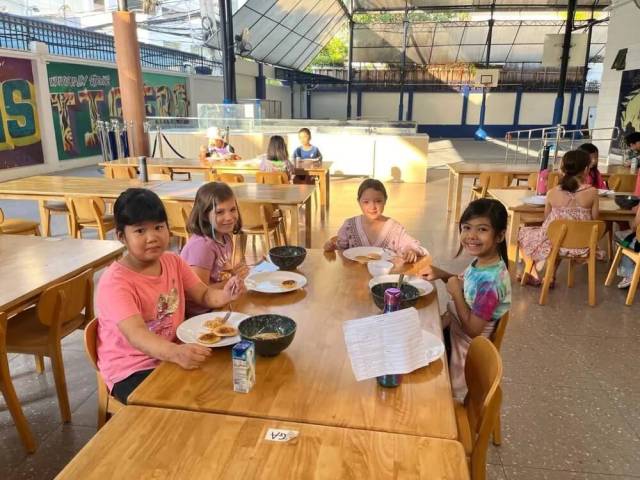
Moreover, a key focus of the program is developing self help skills of preschoolers, which include:
-
- Play-Based Learning: Through play activities, children develop:
-
- Organization skills: Managing materials, and cleaning up after activities.
- States of mind: Focus, perseverance, problem-solving during play.
-
- Inquiry-Based Learning: Engaging with open-ended activities encourages:
-
- Information literacy skills: Gathering data through observation and experimentation.
- Self-motivation: Curiosity drives exploration and independent learning.
- Emotional management: Navigating challenges and setbacks during investigations.
-
- Social Interaction: Collaboration and communication in play fosters:
-
- Developing positive interpersonal relationships: Sharing, and cooperating with peers.
- Managing setbacks: Resolving conflict, coping with frustration.
- Supporting peers: Helping others, taking turns.
-
- Play-Based Learning: Through play activities, children develop:
3 Tips for Integrating Self Help Skills into Daily Routines
Having explored the milestones for self help skills of preschoolers, let us now turn our attention to practical strategies for integrating these skills into their daily routines.
-
- Make skills practice natural and fun
- Use visual aids and tools
- Schedule step-by-step
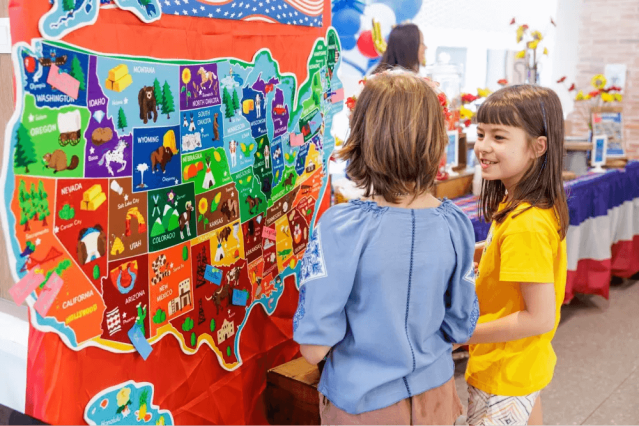
1. Make Skills Practice Natural and Fun
Integrating self help skills needn’t be a chore. Parents can find opportunities to weave practice into everyday activities. For instance, getting dressed can become a matching game by sorting clothes by color or type.
Likewise, cleaning up toys can be transformed into a treasure hunt, with children searching for specific items.
2. Use Visual Aids and Tools
Visual aids and tools can significantly enhance a preschooler’s ability to learn and retain self help skills. For example, creating a picture chart outlining morning and bedtime routines empowers children to visualize the steps involved.
Similarly, using colorful bins for organizing toys or hooks with pictures for hanging clothes provides a clear and consistent reference point.
3. Schedule Step-by-Step
Providing a predictable routine with clear steps is essential for helping preschoolers develop self help skills. Parents can establish a consistent schedule for tasks like getting dressed, mealtimes, and bedtime.
Also, it’s advisable to break down each task into smaller, manageable steps and make them less overwhelming for a preschooler. For instance, the morning routine might involve steps like putting on pajamas, using the restroom, and brushing teeth.
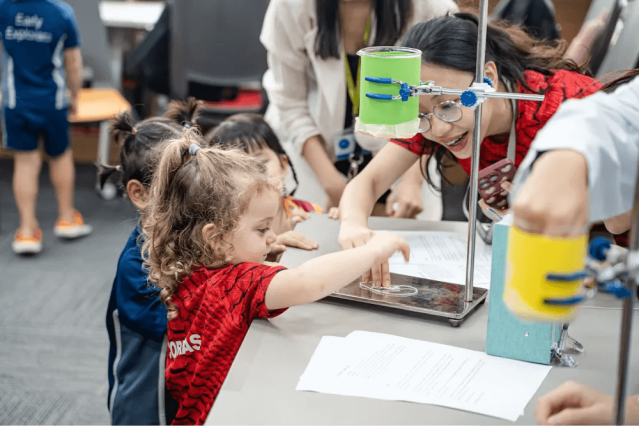
The Early Years program at ISHCMC cultivates self help skills in preschoolers (2-5 years old) through an inquiry-based curriculum. By integrating exploration and age-appropriate tasks into daily routines, the Early Years program and IB Primary Years Programme support young learners to manage basic needs for a joyful day at school.
Through hands-on activities and opportunities for problem-solving, preschoolers develop the fine and gross motor skills necessary to master self-care tasks. The focus on self-sufficiency not only prepares them for academic challenges but also equips them with the confidence to navigate social situations in kindergarten and beyond.
Empowering Young Learners Through Self Help Skills with ISHCMC
The above list of the top 15 self help skills of preschoolers highlights the role caregivers play in nurturing a child’s burgeoning independence.
By providing opportunities to practice these skills in a supportive environment, we help preschoolers to take charge of their daily lives and build a strong foundation for future success.
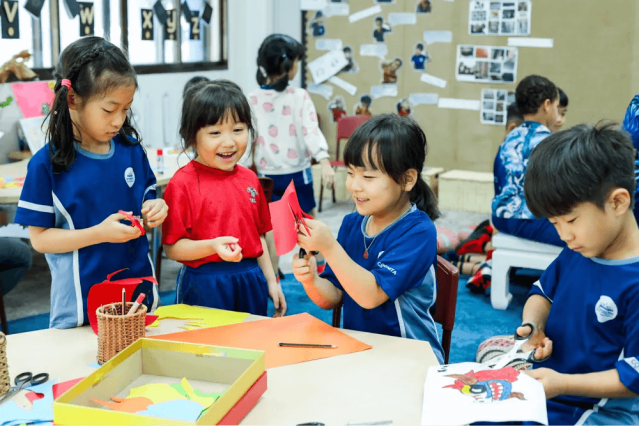
At ISHCMC, we understand how to nurture your child’s natural curiosity and desire for independence. Contact ISHCMC to learn more about our Primary Years Programme (PYP). Our PYP curriculum fosters a love of learning and equips young minds with the skills they need to thrive in a globalized world. Let ISHCMC be your partner in nurturing your child’s self help skills and igniting a lifelong passion for learning.

